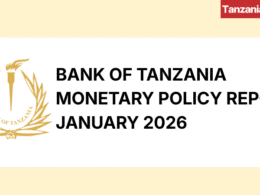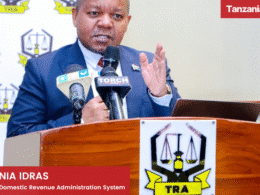According to the recently released International Monetary Fund (IMF) Economic Outlook for sub-Saharan Africa, Tanzania economic prospects are promising.
John Wakeman-Linn, the IMF Senior Resident Representative indicated at the launch of the report that the GDP (economic) growth and declining rates of inflation substantiate country’s rising economic prospects.
Mr. Wakeman-Linn went on to congratulate both the Bank of Tanzania (BoT) and the Tanzania government for their practical monetary and fiscal policies, saying that these policies have helped to strengthen the country against the significant blows that have resulted from the global economic crisis.
“Almost all Tanzania’s macroeconomic indicators – exports, private credit growth and reserve levels are favorable,” said Mr. Wakeman-Linn.
In order for Tanzania to maintain the current level of economic gains that have been made by the country, the IMF official went on to indicate that the country must address its persistent economic trend of a rise in expenditure against a decline in revenue as an overall percentage of GDP.
According to Mr. Wakeman-Linn, while the country’s revenues have remained at less than 15 percent of the overall GDP, its expenditures have continued to grow over the last several years, from less than 20 percent of the GDP in 2003/2004 to nearly 25 percent of GDP in 2009/10 from less than 20 per cent in 2003/2004, with wages representing a large portion of the government’s overall expenditures.
“The government must cut down recurrent expenditure and increase revenues from domestic sources to sustain the economic gains enjoyed today,” said Mr. Wakeman-Linn, “Tanzania faces the challenge of increasing reliance on domestic revenues through careful prioritization of expenditure on well-chosen investments.”
The Daily News Tanzania has reported that the Prime Minister of Tanzania, Mizengo Pinda, as well as numerous other top government leaders have made the commitment to begin reducing the overall public expenditures, particularly with regard to the purchasing of vehicles and the allowances that are being granted for various seminars and workshops.
According to Prof Benno Ndulu, the BoT Governor, in spite the shocks of last year’s global economic crisis, a combination of strong banking supervision and a low level of integration of Tanzania to the global economy has assisted in keeping the country’s domestic economy stable.
Dr. Joseph Masawe, the BoT Director of Economic Research and Policy, explained that the Tanzania economy is currently performing well in part due to the fact that the economic activities within Tanzania have already grown by five percent this year and are projected to further increase by approximately 5.5 percent next year.










